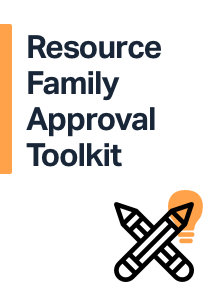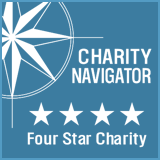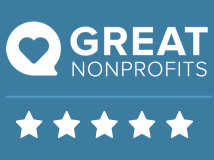Transition Age Youth Services
Providing a bridge for young adults as they strive for success and independence
Young people exiting the foster care or juvenile justice systems in Los Angeles often face challenges in education, employment, and overall well-being.
Our team works to remove these barriers to independence and to empower young adults to advocate for themselves.
A co-sponsor of California’s Fostering Connection to Success Act (AB12) — which extends foster care benefits and housing for an additional 3 years (to age 21) — the Alliance works to change systems to provide critical support to young adults who are “aging out” of foster care.

“I was scared when I turned 18. But the Alliance educated me about my rights, introduced me to my mentor, and helped me get my first apartment. They treated me like an individual, and not a statistic.”
– JORDAN, 19
The Alliance ensures that young adults who are or were in foster care or on probation and are between ages 16 and 24 know their legal rights and entitlements.
How We Can Help
Legal Support
Our team can support you in providing free consultation and legal services including:
- Resolving Identity Theft – Some agencies estimate that as many as half of foster youth in California have been victimized by identity theft. Because your social security number can be compromised, the consequences of identity theft are particularly devastating—negatively affecting your credit history, preventing you from filing your taxes, renting an apartment, or obtaining school loans due to poor credit. We may be able to assist you in resolving these issues.
- Re-entering Foster Care (for Youth 18-21) – As of Jan. 1, 2012, California extended foster care to age 21. If you are 18 years or older, keeping your case open may be an option for you. If you are eligible for extended foster care, you can re-enter as many times as you need to until you are 21 years old. If you are eligible for re-entry, we may be able to assist you with preparing re-entry documents and filing them with the court.
- Clearing Juvenile Tickets – Juvenile tickets can turn into credit problems, and the DMV can refuse to issue you a driver’s license, if they are not taken care. These tickets include traffic offenses and other status offenses, such as loitering, curfew, evading fare on the Metro, defacing property, etc. In cases involving tickets that were issued when a young person was under age 18, our team may be able to help you clear the ticket and fines.
- Accessing SSI Benefits – Supplemental Security Income (SSI) can be an important resource for young adults with disabilities. SSI is a federal benefit that provides monthly income to individuals with physical or mental disabilities and entitles them to additional supportive services. In addition, individuals who are eligible for SSI benefits also receive Medi-Cal, which provides health coverage. We can help young adults access SSI benefits, and in certain cases where an SSI application has been denied, we may assist in appealing the denial of benefits.
- Sealing Juvenile Records – While looking for a job, you may face a question on the job application about whether you have ever been arrested and/or convicted of a crime. Answering “yes” can impact your chances of being hired. The Alliance may be able to assist you in getting any juvenile records “sealed” so that employers will not be able to view your juvenile criminal history.
- Requesting Name Changes from the Court – The Alliance assists clients with preparing name change petitions to be filed in court and with requesting a waiver of court filing fees.
- Obtaining Your Birth Certificate – A birth certificate is an important legal document used to establish identity. You need it to get a social security card or U.S. passport, apply for a driver’s license, prove U.S. citizenship, and enroll your child in school. If there is a mistake on your birth certificate or one does not exist because you were not born in a hospital or the hospital did not record it, the Alliance may be able to assist you to correct or establish a birth certificate in court.
- Emancipation – Emancipation is a way to legally separate and free yourself from the custody and control of your parents or guardian, before turning 18 years old. After you’ve become emancipated, you give up the right to have your parents or your guardian support you financially. If you need help with emancipation and meet the eligibility requirements, the Alliance may be able to assist you.
Help with Housing
The Alliance helps young people in foster care who need housing with:
- Determining eligibility for various housing programs
- Applying for housing programs
- Advocating on behalf of clients who are being discharged by a housing provider so that the client may maintain their housing
- Problem-solving with clients to identity temporary housing options when they are needed on an emergency basis
- Connecting clients who were formerly in care to the Coordinated Entry System so that they can apply for housing programs and services available through the Los Angeles Homeless Services Authority

Foster youth ages 18-21 may be eligible for these housing programs:
Transitional Housing Programs (called THPP+NMD programs)
Youth live in an apartment or house and receive life skills training. In these programs, the young person does not pay rent, and DCFS pays the housing program to cover the cost of room and board. The housing program typically provides the young person with money for food and may also provide a small stipend for basic expenses.
Supervised Independent Living Program (SILP)
Eligible young adults must pass a readiness assessment and find their own place to live (e.g. a college dorm, apartment, or room to rent in a house), which must pass an inspection. Once the living arrangement is approved, the young person is eligible to receive $1000 per month, which they can use toward the cost of rent, utilities, food, and other living expenses. ***
Residing with a Resource Family
Youth may be able to reside in the home of an approved caregiver, called a Resource Parent. In these cases, DCFS provides funding to the Resource Parent instead of to the young person, and the Resource Parent would use that funding to cover the living expenses of the young person.
*** In some cases, even though you meet the eligibility requirements for SILP or Infant Supplement benefits, DCFS fails to provide those benefits. Other times, there are significant delays in receiving the funding. The Alliance may be able to represent you in appealing the denial or delay of SILP and Infant Supplement benefits through administrative hearings held before the California Department of Social Services.
Youth formerly in foster care or on probation (18-24) and now have a closed case may be eligible for transitional housing programs through the Independent Living Program (ages 18-21) or through the Transitional Housing Program Plus (THP Plus) (ages 18-24). Young people may only reside in a THP Plus program for 36 months total or until they turn 25.
The Alliance assists young people who are eligible for the Independent Living Program to access services through the program, including ILP housing, school tuition, books, a TAP card, and other services available through the program.

Transitioning to Adulthood
Accessing Education Resources We assist young adults with their education goals by connecting them to:
- Foster youth support services on college campuses
- Financial aid and scholarship programs
- High school diploma completion programs
Finding a Mentor
It’s very important as you transition out of foster care that you have a supportive adult in your life. If you would like to be connected to a mentor, contact us.
Becoming a Young Leader and Advocate
Do you want to become an advocate in your community to help reform the foster care system? In collaboration with the Opportunity Youth Collaborative, we select youth to be peer advocates in our Young Leaders Group.
The Alliance is Here.
If you are between the ages of 16 and 24, were or are currently in foster care, and seek assistance, contact us.
Want to join us? Volunteer to be a mentor or advocate.








